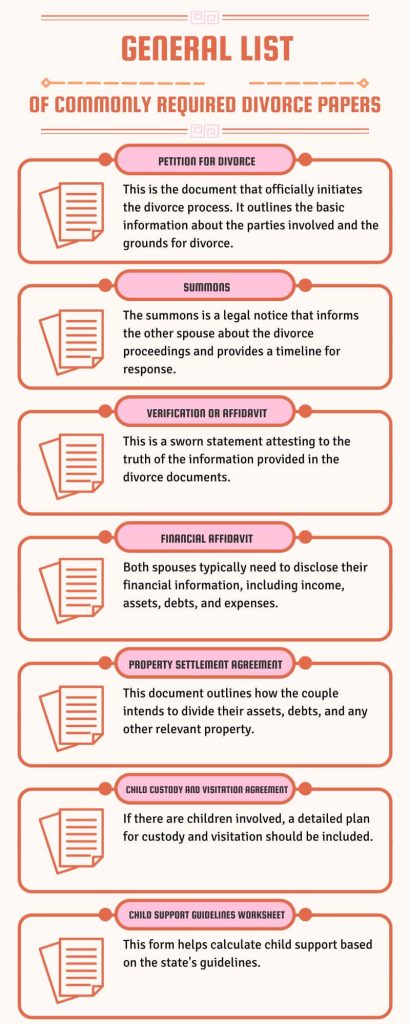Although the Delaware divorce process is quite standard, it may seem confusing when you are not familiar with the basic state regulations and requirements. In this article, we have gathered the answers to the most frequently asked questions on marriage dissolution laws in Delaware that will help you figure out its main aspects and navigate the process effectively.
Table of Contents
ToggleIs Delaware a No-Fault Divorce State?
Delaware is a no-fault divorce state, meaning the plaintiff should not blame the other spouse for the ruined relationship and prove their guilt in court. Therefore, the main reason for divorce in Delaware is the irretrievable breakdown of the marriage with no hope for reconciliation (13 Del.C. §§ 1502(3); 1505(a)).
What Are the Grounds for Divorce in Delaware?

The only official ground for divorce that spouses can specify in the Petition is that the marriage is irretrievably broken, which makes Delaware a no-fault divorce state. Though there are currently no fault-based legal reasons for divorce, the spouse’s misconduct can still be indicated in the Petition as the factor that led to the marriage breakdown.
No-Fault Grounds
Irretrievable marriage breakdown without the possibility to reconcile is the only reason for both contested and uncontested divorce in Delaware as stipulated in 13 Del.C. § 1502(3). The proof of this fact may be spouses’ separation that can be caused by:
- Voluntary decision;
- Incompatibility;
- Respondent’s mental illness;
- Respondent’s misconduct (13 Del.C. § 1505(b)).
Fault-Based Grounds
According to 13 Del.C. § 1505(c), you can file for divorce in Delaware only due to the irretrievable breakdown of your marriage, meaning there are currently no official fault-based grounds that you can state in the Petition.
However, every petitioner should specify what led to this breakdown, and one spouse’s misconduct can be a valid cause. Under 13 Del.C. § 1503(7), misconduct is defined as a manifestation of destructive behavior that makes the relationship unbearable, the examples of which include but are not limited to:
- Adultery;
- Abuse;
- Desertion;
- Bigamy;
- Conviction of a crime;
- Habitual substance abuse.
What Are the Delaware Residency Requirements for Divorce?

According to 13 Del.C. § 1504(a), a couple can file for divorce in Delaware if one of them has been a state resident for the past six months at a minimum. If it is a same-gender civil union, and neither spouse is a state resident, they still can file in Delaware if their union was concluded in this state. In such a case, they should submit the Petition in the county where both or one of them last lived.
Although such details are normally specified in the Petition for Divorce, the court may sometimes ask the couple to prove residency for divorce at a hearing.
What Delaware Divorce Papers Do I Need for Filing for Divorce

The basic package of divorce forms required by Delaware courts consists of:
- Petition for Divorce/Annulment;
- Information Sheet;
- Vital Statistics Sheet;
- Request for Notice; and
- The original of your marriage certificate (or its certified copy).
Depending on your family circumstances, presence or absence of minor children, financial situation, or personal expectations from the process, you may also need some more forms to be added to a set of your paperwork to file for divorce in Delaware. These can be:
- Separation Agreement if you agree on all the divorce matters with your spouse;
- Affidavit of Children’s Rights if you have minor children;
- Ancillary Financial Disclosure Report if either party requests any ancillary matters in the Petition.
How Can I Get My Divorce Papers in Delaware?
Divorce papers may be obtained from the lawyer if you hire one to help you with the paperwork and the overall divorce process or found online on reputable governmental websites if you decide to file on your own. However, you should keep in mind that the required forms may be county-specific. Besides, some agencies do not update information and the offered documents on their websites timely, which means that you can download outdated forms not accepted by the court anymore.
Indeed, finding the right divorce papers in Delaware on your own may be a daunting task fraught with probable risks. While a lawyer can save you from these challenges, you may also avoid paying for their help, saving thousands of dollars, if you use an online paperwork preparation service.
If you register with us and complete a comprehensive questionnaire online, you will get a full package of papers that meet the needs of your specific uncontested case. Our system selects and fills out the required forms in accordance with your answers in the questionnaire. In addition, we provide you with step-by-step instructions on the filing process without any extra fees.

How to File for Divorce in Delaware?
When you file for divorce in Delaware, make sure that you meet the residency requirement and get the right papers necessary for your specific case. Consider if you agree with your spouse on the issues of child custody and financial support; what marital property you own and whether you have decided how to split it; alimony that either of you may require; whether you can pay court fees; and if you need a hearing. The answers to these questions will help to find out if your divorce will be contested or uncontested and the type of forms you may need at different stages of the process.
Next, take the following steps:
- File the papers. Complete the starting package of forms, make their copies, take them to the Family Court clerk in your county, and pay a filing fee. The clerk will time-stamp the papers and give you back the copies.
- Serve the papers. Notify your spouse about the initiated divorce process by serving them copies of the documents via certified mail or an authorized person assigned by the court.
- Wait for the answer. The respondent has 20 days to file an Answer to the Petition by admitting and agreeing with all the indicated statements or denying them and filing a counterclaim, which would turn your divorce into a contested one.
- Wait till the Petition is trial-ready. Complete the separation period imposed by the state laws. The court will start processing your case only after you have been separated from your spouse for at least 6 months. In 13 Del.C. § 1503(8), separation is defined as living separately and apart, which may also be possible if spouses dwell under the same roof but occupy different bedrooms and do not cohabitate.
According to the same statute, separation may not be required if the plaintiff starts a divorce due to the other party’s misconduct.
Mind that you can file for divorce at any moment after you have separated (13 Del.C. § 1507(e)), not obligatory when 6 months of your separation are over. Similarly, it does not mean that you need to move apart only after filing the Petition.
- Attend a hearing. The court will schedule a hearing if your case is contested or if you requested it in the Petition for an uncontested divorce. In such a situation, you will receive a Notice of Hearing with the date and time it will be held. Your Petition will be dismissed if you do not come to a hearing.
- Finalize the divorce. After all issues are resolved, the hearing is over, and the paperwork is approved, the judge will sign the Divorce Decree and officially finalize your marriage.
Where to File Your Divorce Case?

You should file the Petition for divorce with the Family Court clerk in the county where you or your spouse live. If you both live out of state, and the divorce courts in your location do not permit marriage dissolution due to some legal grounds, you can still file in Delaware, given your civil union was registered here.
How Much Does a Divorce Cost in Delaware?
The average cost for a divorce in Delaware is around $13,000, which is generally determined by the type of marriage dissolution you pursue and all the accompanying circumstances.
A contested case will be much costlier due to the need to hire an attorney, with the divorce lawyer fees in Delaware ranging from $170 to $700 per hour. Therefore, depending on the complexity of your situation, the number of disputes you will need to negotiate and resolve, and the time the attorney will work on your case, the total cost of your Delaware divorce may be between $10,000 and $35,000.
The cost of a full-agreement, uncontested divorce is likely to be much lower, even if you decide to hire a lawyer for consultations or some other legal help. Since you do not need them for full representation and have already reached all the settlement agreements, your divorce expenses may reach $3,000-$8,000.
What are the Filing Fees for Divorce in Delaware?

The current divorce filing fee in Delaware starts at $150. Yet, it varies from one county to another and will also get higher if you need supplementary motions, orders, or other court services.
How Long Does a Delaware Divorce Take?
In Delaware, the marriage dissolution procedure may last from 6 months to several years and is mostly conditioned by the specific circumstances of the case.
If you ask, “How long is a divorce process in Delaware?”, you will not get a definite answer since you need to consider the type of your marriage dissolution, the complexity of disputes and the spouses’ ability to negotiate and resolve them, and the court’s caseload.
Under the most favorable conditions, you may be divorced in 180 days since filing the Petition, considering the mandatory 6-month separation period imposed by Delaware laws (13 Del.C. § 1507(e)). However, things will not move as quickly if your case is contested and you cannot agree on one or several issues concerning your divorce. In such a case, you will need to spend much time negotiating and attending multiple court hearings, which may drag on for a year or more in the most complicated cases.
Is Delaware a 50/50 State?
Delaware is not a 50/50 state since the court makes property division decisions on the basis of equitable distribution principles, which does not always mean that it will be divided equally.
How to Divide Property in Delaware Divorce?
According to Delaware divorce laws on property division, only marital property is distributed between spouses. In 13 Del.C. §§ 1513(b); 1513(c), marital property is defined as:
- any property acquired by either spouse during the marriage, no matter if they hold title to it jointly or individually;
- jointly-titled real property acquired before the marriage;
- any property presented as a gift by one party to another during the marriage.
Separate property is the one acquired by one of the parties before the marriage or obtained as inheritance or gift (but for gifts received from another spouse), any increase in its value, and property that was defined as non-marital in a written agreement of the parties (13 Del.C. § 1513(b)(1)). It is normally not divided and is left to the owner party.
How to Split up Assets?

Divorce laws in Delaware provide for equitable distribution of assets between the spouses. It means that the court divides marital property not equally but in the way it considers fair, regardless of marital misconduct, after paying attention to the following factors:
- Marriage duration;
- Any prior marriages;
- Both spouses’ age, health, vocational skills, employability, income, property, liabilities, debts, needs, and ability to acquire capital assets and income in the future;
- Each spouse’s contribution to the marriage and acquisition and preservation of marital property;
- If the property is awarded instead of alimony or includes it;
- The value of the awarded property;
- Each party’s economic situation when the division takes effect and the readiness to manage it with regard to child custody orders;
- Tax consequences (13 Del.C. § 1513(a)).
How to Manage Child Support and Alimony Under Delaware Divorce Laws?
Child support and alimony in Delaware are mostly determined considering both parties’ needs and capabilities in the first place.
Regulations concerning alimony, or spousal support, which are payments made by one spouse to another, are outlined in 13 Del.C. § 1512. If the parties cannot agree on these issues themselves, the court will make a decision at a hearing.
The court may award alimony only to a dependent party as defined by Delaware laws. To qualify for these payments, the requesting spouse must prove that they are dependent on the other spouse for support, lack sufficient property after its division to meet their needs, or are unable to support themselves due to the lack of appropriate employment or inability to seek one as a custodial parent. Reasonableness, amounts, and duration of spousal support payments are based on the following factors:
- Marriage duration;
- The standard of living maintained during the marriage;
- Both spouses’ age and physical and mental health;
- Each party’s contribution to the personal and professional development of the other party;
- Each party’s educational, employment, and self-development opportunities and whether they made use of or declined them during the marriage;
- The dependent party’s financial situation and ability to meet their needs;
- The time and cost of education or training necessary for the dependent party to acquire appropriate employment;
- The paying party’s ability to meet the dependent party’s needs;
- Tax consequences;
- Any other relevant factors that the court deems appropriate.
Since, under Delaware laws, the parents’ primary responsibility is to support their minor children, the financial support rests on both of them after the divorce. The amounts distribution is defined by the court following the Delaware Child Support Formula described in Family Court Civil Rules 500-509, taking into account:
- Children’s needs;
- Both parents’ incomes;
- Costs of health and disability insurance, pension plans, union dues, school and daytime expenses, etc.;
- The number of overnights spent by children with each parent.
How Child Custody Is Determined in Delaware Divorce?

In accordance with Delaware custody laws, the court may assign sole or joint custody, establishing residential arrangements, which is the time spent by the child with each parent, and legal custody – the authority of each parent to make important decisions concerning their kids. Under 13 Del.C. § 722, these issues are determined in the child’s best interests after considering the following factors:
- Parents’ wishes;
- Children’s wishes;
- Mental and physical health of all the involved parties;
- Children’s relationship with parents and other residents of each parent’s household or people affecting children’s best interests;
- Children’s adjustment to home, school, and community;
- Both parents’ compliance with their rights and obligations toward their children;
- The criminal history of both parents and any other residents of their households;
- Any evidence of domestic violence or abuse.
How Does Adultery Affect Divorce in Delaware?
In fact, adultery only affects the couple’s relationship and the decision to divorce while having no sufficient impact on the final outcome.
The answer to the question “Is adultery a crime?” may be quite ambiguous. There was a time when marital infidelity was considered a misdemeanor across the United States, resulting in a serious penalty. Since then, many states have decriminalized it, while it does not entail prosecution in those where it is still recognized as a criminal offense.
In the context of divorce in Delaware, adultery typically does not affect the orders established by the court in the final decree. Although it is one of the examples of marital misconduct, which may be the reason for a couple’s separation and succeeding divorce, marital infidelity may play no role in the court’s decisions on child custody and support, property division, or alimony since they are made with no regard to misconduct.
The Bottom Line
Delaware laws allow you to file for divorce due to irretrievable breakdown of your marriage if either party has been living in the state for the past 6 months at minimum or if their civil union was solemnized here, but none of them is a state resident at the moment. If you cannot agree on all the disputes to get an uncontested marriage dissolution, the court will make major decisions regarding property division, child custody and support, and alimony according to the Delaware Code in a contested case, which would be much costlier and more time-consuming.
After collecting and completing all the required forms for the case, you can take them to the Family Court clerk in the county where one of you lives. Alternatively, you can get a Delaware online divorce, which is a perfect option in case of full-agreement uncontested marriage dissolution to save time and money that could be spent on high lawyer’s hourly fees. An online divorce service that offers help with document preparation would be a wonderful assistant in selecting and filling out the forms necessary for your individual situation. For a very moderate fixed fee, you can get the full package of already completed papers that meet Delaware legal standards and detailed instructions on each step of your divorce process.


Heather Ritchey is a distinguished expert in the field of family law. Drawing from the wealth of her experience, she is a sought-after advisor, speaker, and advocate. Heather’s insightful perspectives and comprehensive approach have solidified her position as an invaluable resource for those in need of expert guidance in family law matters. She is dedicated to helping individuals navigate the maze of family-related legal issues with precision and compassion.



